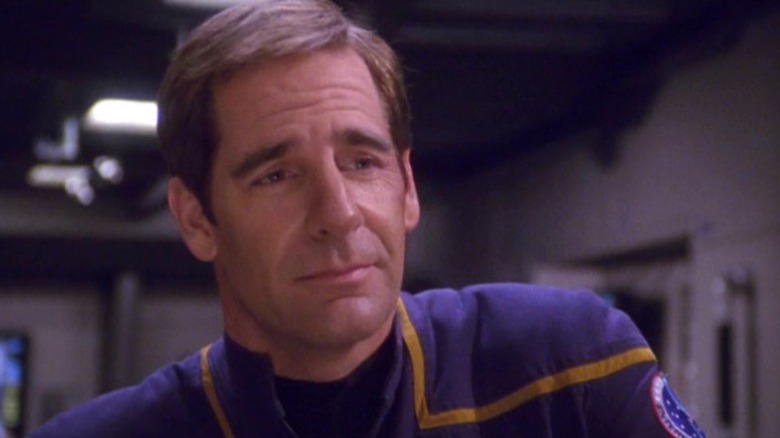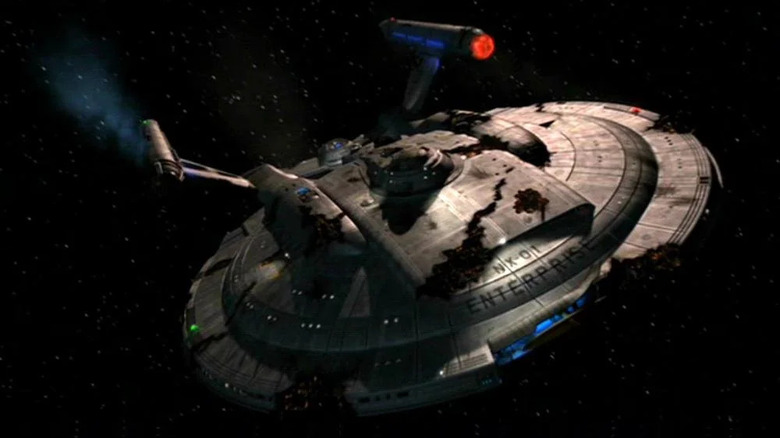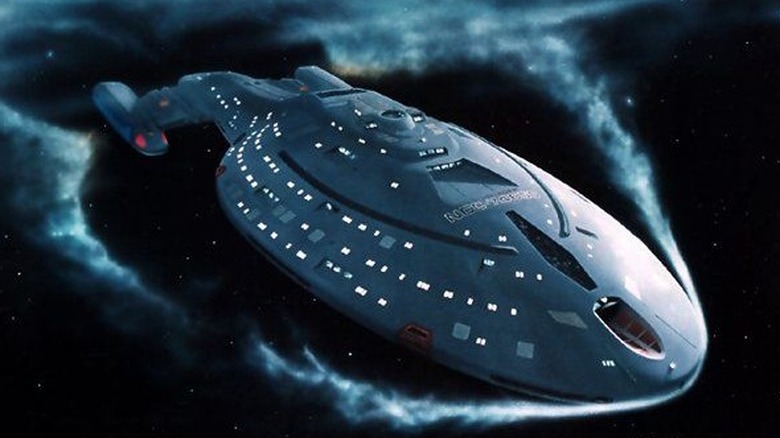“Star Trek: Enterprise” doesn’t have the best reputation. A prequel set in the 22nd century, “Enterprise” took place before the Federation was founded and when humanity was just beginning to travel where no (hu)man had gone before. General consensus is that it didn’t do enough to stand apart from past “Star Trek” shows, despite its supposedly different setting, and made the franchise look like it was out of steam.
“Enterprise” wound up being the first “Star Trek” series since the original to not get seven seasons; the fourth season, which aired from 2004 to 2005, was its last produced. The show improved as it went on; season 4 (showrun by the late Manny Cato) is often downright great. Unfortunately, it was too little too late for a season 5 that could’ve kept this stride going.
Scott Bakula, who starred as Captain Jonathan Archer, has some theories about why the show got off on the wrong foot and ultimately couldn’t take full flight. For one, Bakula feels the series was unfairly burdened in holding up the declining United Paramount Network (UPN). “Enterprise” needed to succeed for the network to succeed and there were some tight creative leashes in play (like no “Enterprise” actors being allowed to direct episodes).
Bakula shared some more insights in the 2012 reunion special “In Conversation — The First Crew.” One of his criticisms? Too many episodes all at once.
Enterprise was the culmination of too much Star Trek
Bakula, discussing “Enterprise” with his old castmates and co-creator Brannon Braga, got into some of the problems the show faced. Something he pushed back on from the beginning, he said, was doing 26 episodes a season. “26 episodes a year is stupid […] I said, what the hell was that all about? It was like, you have too much product, you don’t have room to air it, and [the cast is] exhausted.”
The exhaustion was felt on the writing side as well, per Braga. “It gets hard to do 26 episodes that fully exploit the potential of the show […] by the middle of the second season, it was like let’s either stop or let’s do something radical,” he recalled. Bakula also pinpointed “Enterprise” season 2 as the pivotal season, recalling Braga summoning him to his office to discuss how the show needed some innovation.
Said innovation was to structure the third season around an overarching story. After enigmatic aliens known as the Xindi attack Earth, the Enterprise sets out to investigate. This structure still allowed for standalone episodes throughout the season, though, a la the Dominion War arc of “Deep Space Nine” and the typical season structure of UPN neighbor “Buffy The Vampire Slayer.”
“Season 3 was the first time I was actually enjoying writing every single episode, and I think it showed,” Braga recalled. Bakula also got his wish: season 3 was cut to 24 episodes and then season 4 was cut to 22. Oh the irony, the best seasons of “Enterprise” are also the shortest.
Enterprise inherited its problems from Star Trek: Voyager
Bakula has another issue with how “Enterprise” was rolled out. When it premiered in September 2001, “Star Trek: Voyager” had only finished months prior back in May. That also contributed to a feeling of “Star Trek” bloat. To quote Bakula directly:
“We should not have come on right on the heels of ‘Voyager.’ That was the other thing. In a perfect world. But I know what the world was, the world was, ‘We have to launch UPN, we have to hold up UPN.’ But in a perfect world, if we could have waited and let the smoke settle.”
Since the premiere of “Star Trek: The Next Generation” in 1987, there had continuously been a “Star Trek” show airing new episodes. (Not counting season breaks, of course.) The last two seasons of “Next Generation” overlapped with “Deep Space Nine,” then “Voyager” launched during “DS9” season 3. There was already a feeling when “Enterprise” premiered that “Star Trek” had hit a wall. “Voyager” also received many of the criticisms “Enterprise” did, that it didn’t do enough to stand apart from other “Star Trek” shows.
Ronald D. Moore, a prolific “Trek” writer, quit “Voyager” and channeled his frustrations with that show’s rut into “Battlestar Galactica.” According to Braga, his producing partner Rick Berman even unsuccessfully fought against launching “Enterprise” so soon after “Voyager.” “The [golden] goose was already hobbling,” as Braga put it.
“We were writing these kind of little episodes that I feel could have been on any of the other four franchises,” said Bakula, commenting on the first one and a half seasons of “Enterprise.” This echoes a criticism I’ve read on many message boards. This uninspired writing being produced at a glut set “Enterprise” up for failure from the beginning. Not even the “incredible” last two seasons (to echo the word Bakula used) could save the show.










